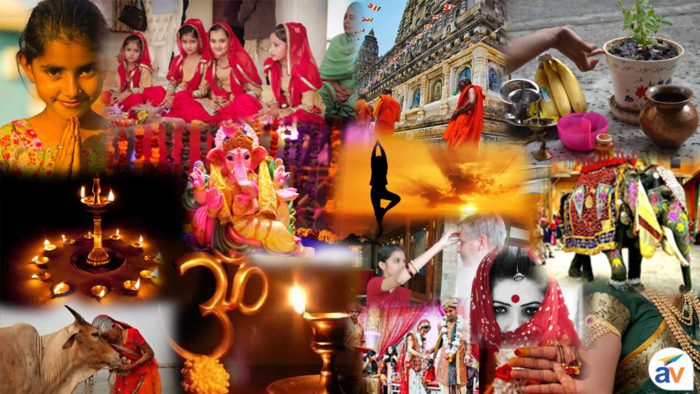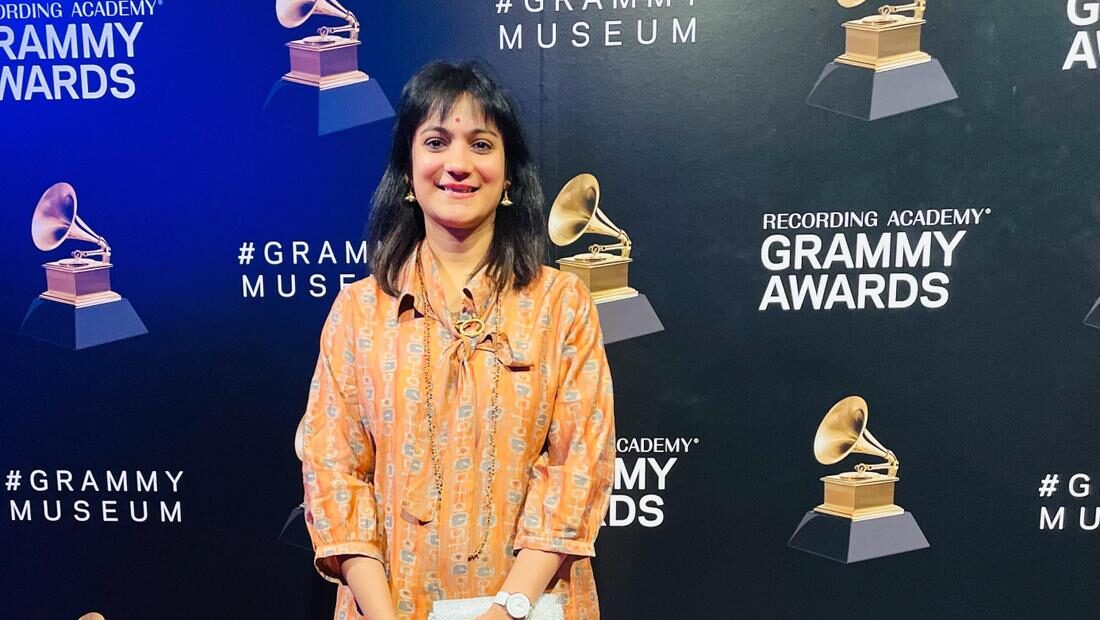At a recent seminar on India's Soft Power: Reimagining Role of ICCR, the president of the Indian Council for Cultural Relations Vinay Sahasrabuddhe said the very discovery of India starts with Indian Soft Power. He was speaking on the occasion of ICCR recently celebrating its 70th foundation day on April 9.
ICCR was set up in 1950 by Maulana Abul Kalam Azad and is known as the soft power arm of the Ministry of External Affairs and has 38 cultural centres abroad and 19 regional offices in India. Sahasrabuddhe said that while Soft Power was coined by Joseph Nye for the first time in the 1990s this did not mean that soft power did not exist before then.
Sahasrabuddhe said every country has its own soft power model as soft power depends on the history, culture and other value systems the country has. Vasco de Gama and Christopher Columbus set out to find India in search of spices. He gave out an umpteen number of examples with regard to Indian Soft Power including the influence of our epics Ramayana and Mahabharata in South-east Asia.
Parliamentarian and a student of international relations and politics, Sahasrabuddhe said after the second World War the limitations of military might were very obvious and thus influencing people was easy. “So instead of occupying geographical land, they thought that occupying mind space was more relevant. This occupation of mind space was central to the idea of soft power.”
In explanation, Sahasrabuddhe spoke of his visit to Beijing and said it looked a lot like America except that it was ‘Mandarin America’. He experienced the same in Tel Aviv, so it could be called ‘Hebrew America’. This was the effect of American influence. So apart from the language spoken, the countries resembled America. “However you will not observe and experience this in India, like in Connaught Circus, Delhi or Khuda ke Chowk, Mumbai. This shows how intact India’s identity is and this shows that India is the “Super Soft Power of the World”.”
India is uniquely positioned with respect to soft power, he said. “In every country and almost every nook and corner of the world, wherever one might find India's population, one can observe that Indians live together in cooperation. There is no enmity with foreigners or amongst each other. This also shows how India is welcomed by all.”
This, he says is due to five aspects-
Historically speaking, India has never held the title of a global power or in other words, India has never been an aggressor. “We have never ventured to other countries and tried to use our political power to establish our regime there. We are known to be a very friendly country and to live and let live has been the guiding principle of India approach or Indian world view. People are not afraid of India as they are of super power countries. There is mutual respect and trust within people. Indians do not have any ulterior motive of aggression.”
The second factor is our spiritual democracy. “We are known for our various forms of worship and belief systems. India never allowed any sort of monopolistic view with respect to an individual's relation to their spiritual superior power. We have always allowed every other way of worship and thus Ekam sat vipra bahudha vadanti has been the guiding principle.”
From time immemorial India has been a knowledge society. “We have produced two great epics and mathematicians, Ayurveda, wellness therapies. These knowledge systems are known to be essentially Indian.”
The way Indians determine the relationship between an individual and the society is very unique. “In an ultra-individualistic society, there is a view of how one peanut relates itself to the jute bag of peanuts on a whole. If you do away with the bag, each peanut in that bag is an individual entity. There is an ultra-socialistic view. This compares the relationship between an individual and the society to a grain of sugar in a glass of milk. The grain of sugar has no existence independent of the sweetened milk. The grain of sugar is only there to add sweetness to the milk. The Indian model is the most balanced model. The relationship of the individual with the society is that of a part of the body with the body itself. This is known as the Angangi relationship. This is very unique to the Indian philosophical view that sets us apart. This is what helps us to sustain. We believe in collectivism. When you look at a family, there are many aunts and uncles from the paternal and maternal side. In the English language, there is no separate nomenclature for them. However, in Indian languages, each relation has a separate nomenclature, like paternal aunt in Hindi is Chaachi and maternal aunt is Maasi. We recognise the individuality of the relationship and the family system gives a strong foothold to evolve that relationship. This is very unique to Indian social structures.”
The last aspect is the way Indians relate to nature. “We have never had thoughts of conquering Mother Nature and instead we have only been relating ourselves to Her and worship nature. This worship of nature is prevalent in all parts and communities of India. Our lifestyle is filled with ways of worship of nature.”
Sahasrabuddhe says the various facets of Indian Soft Power begins with epics and the influence of these epics. There are Ramayana festivals organised in many parts of the country and even in Islamic countries. When ICCR organises these festivals, many artists from Islamic countries come to India to participate.
“Our spirituality has also evolved and it is mostly intertwined with the epics. Our epics are thus a key area of our soft power. We are a country with a history going back to several thousands of years. Every part of heritage and history of which the global community is very curious about - this also becomes an integral part of our soft power.”

Traditional India Knowledge Systems
Ayurveda, Yoga, Sanskrit provide a strong foothold for a unique strength in soft power. Additionally, he says, “Our traditional arts, performing arts and dances, classical music, folk dances, textiles, metallic art, are all important ingredients of our soft power. Our culinary and food traditions also play a huge role in soft power. Indian food is very popular in other countries and Indian hoteliers and those running restaurants in other countries are doing a brisk business due to the fact that Indian food is liked by one and all.”
He then spoke of the role of ICCR and how they can add and enhance the reservoir of goodwill that India has earned through these years. He said that one important aspect of Indian soft power is people themselves, especially the NRI community. “This is because they represent the ideas of India in their own way in other countries. The way they conduct themselves as a society or a regional/ethnic group, their work culture, the kind of work they bring to the table, the kind of social and cultural values they adhere to while they are on foreign soils - all this helps foreign nationals to understand India.”
ICCR offers 5,000 scholarships to students from various countries and these scholarships are awarded by various ministries, but the selection of students is through ICCR. The selection of students is based on diplomatic considerations, For example, ICCR has awarded 1000 plus scholarships to students from Afghanistan. Similarly students are picked from Bangladesh, Sri Lanka. The heads of many countries especially the neighbouring countries like Nepal, Bhutan, Sri Lanka, and Bangladesh are all alumni of Indian Institutions at some point of time or other. This provides the impetus to enhance India’s soft power.
Now in the coming days, ICCR has decided to increase the number of scholarships and the focus of the union government is to allow more foreign students to India, he said. “Of course the whole scenario might be slightly different post Corona, however according to the current statistics, India is the 26th destination country and the third source country. It is natural to want to move up the ladder, but ICCR cannot do this alone and needs the strength of many ministries like the Ministry of HRD, Ayurveda, Health Sciences to create an atmosphere where foreign students are attracted and India can become a hub of higher education.”
ICCR has also been sending troupes of Indian artists abroad and intends to bring in a set of new reforms. “A dancer going abroad and only giving a performance is not sufficient, they should explain the philosophical view behind the performance. In classical dances, the mudra art form has a philosophical basis and that requires to be explained as these dances are not just for entertainment.”
ICCR is focusing on making art performances educational events to take these aspects abroad in an appealing manner. They are also conducting classes in Sanskrit, Indian music and dance, Indian culinary science and cuisine and Yoga in many cultural centres. “ICCR is focusing on making these classes more structured and formalised. They are trying to affiliate with many institutes to make these courses more structured so that they can be considered more reputed and a status is attached to them”.
The new “Understanding India” program has been started as while India is welcomed everywhere, India is not understood the way it should be understood. “India as a country for a social science student can be confusing as India is vast and very diverse. Within these diversities there are many aberrant contradictions as well and this can be an issue for a foreign student to make sense of,” he said.
Sahasrabuddhe said the program is one month long and would be available online and offline and ICCR would like to invite 10 foreign national students to come to India for 10 days and stay with a few Indian host families to try and understand first-hand the Indian family system.
He said that there is a lot of work to be done to enhance the soft power. One area that needs emphasis is Indian literature. He had raised this in the recent Parliamentary asking as to why after Rabindranath Tagore’s Gitajali was awarded the Nobel Prize for Literature in 1930, there have been no other works which have been considered worthy of this award. “This is mainly because most of our Indian literary works do not get adequately translated into Latin, French, German and other foreign languages. This requires us to go an extra mile and get them translated,” he said.
He wants to change the narrative of India’s history textbooks which speak about many foreign travellers who travelled to India and spoke highly of India. “What we need is new literature, new Al-Birunis and Faxians to visit India and write about her.”
Sahasrabuddhe explained the term ‘Spiritual democracy’ – saying democratic spirit is not for politics alone, this democratic spirit must extend to all spheres of lives. He believes that India has been a strong adherent of spiritual democracy from time immemorial and has never allowed any sort of monopolistic approach.




